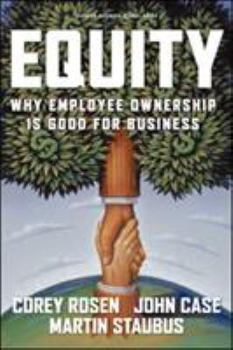Equity: Why Employee Ownership Is Good For Business
This book reveals dozens of companies in which employee ownership is simply the way they do business. Shows how and where these companies do things differently from traditional companies. Shows that this approach enables companies to grow faster and more profitably than others.
Format:Hardcover
Language:English
ISBN:1591393310
ISBN13:9781591393313
Release Date:May 2005
Publisher:Harvard Business Review Press
Length:214 Pages
Weight:1.10 lbs.
Dimensions:0.9" x 6.5" x 9.4"













